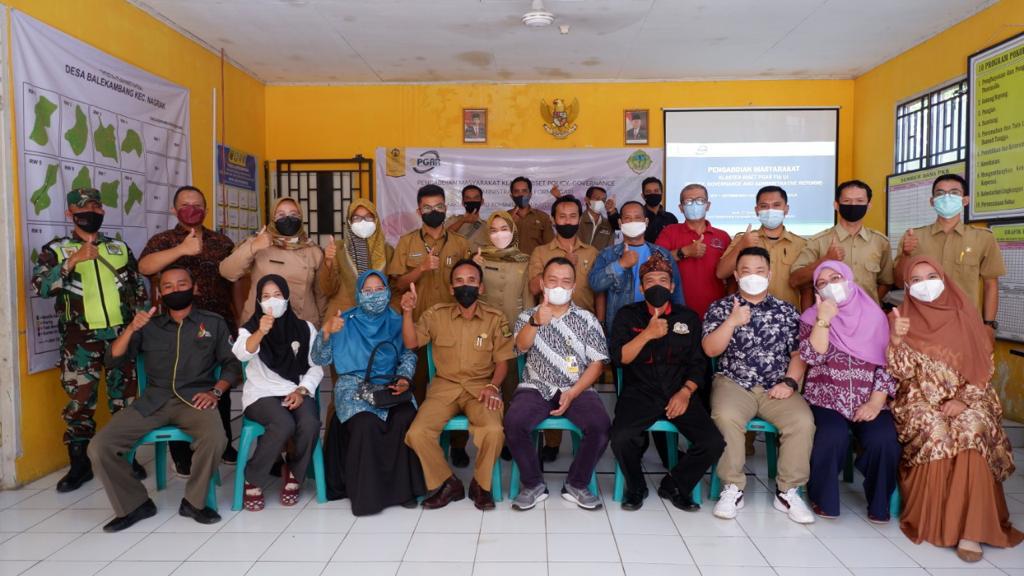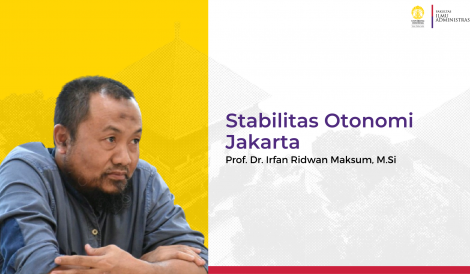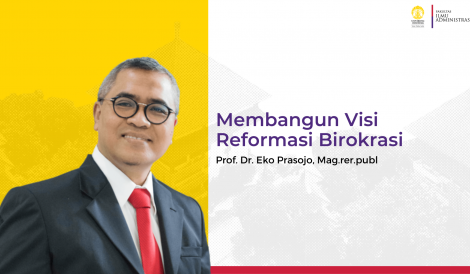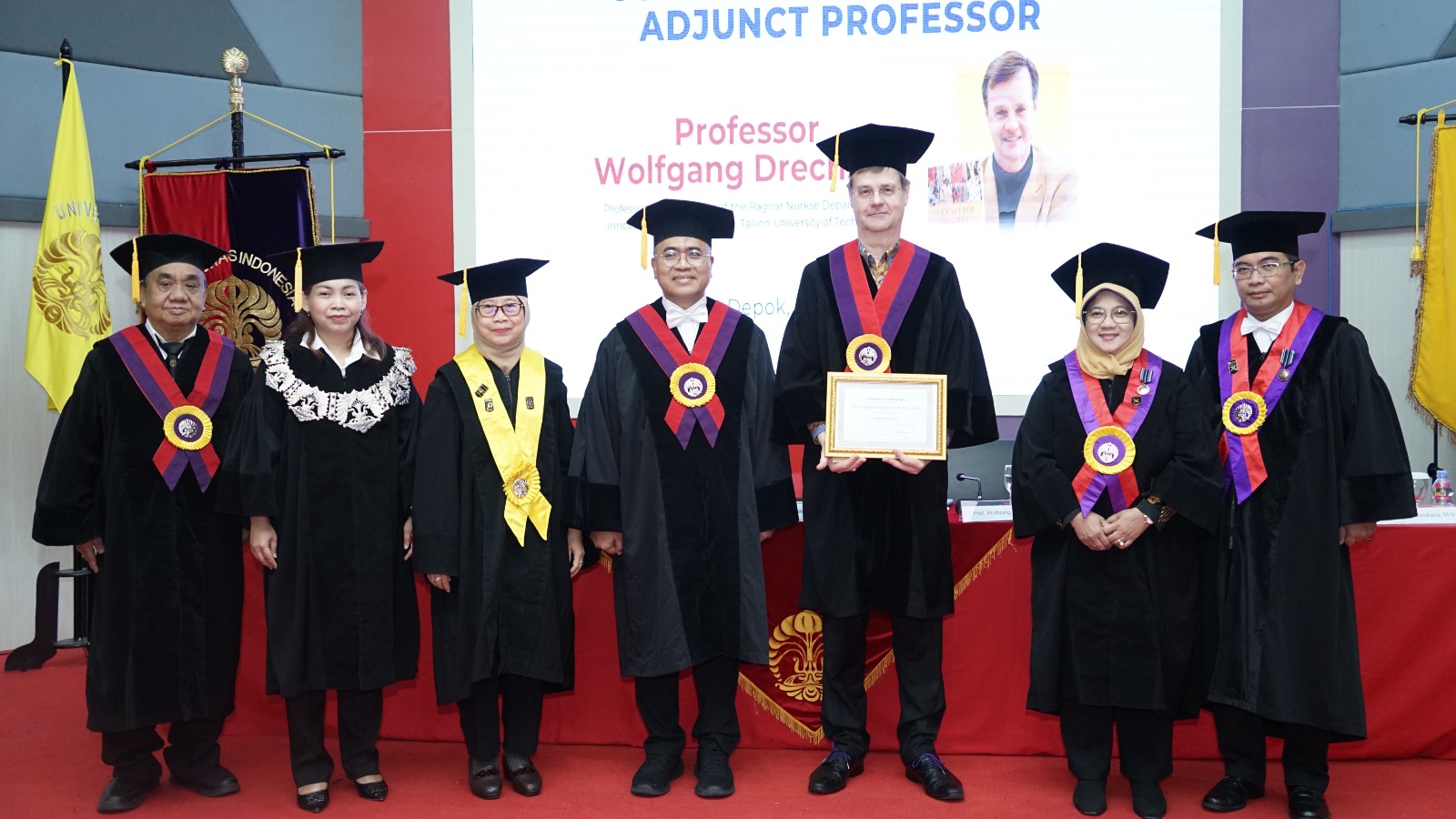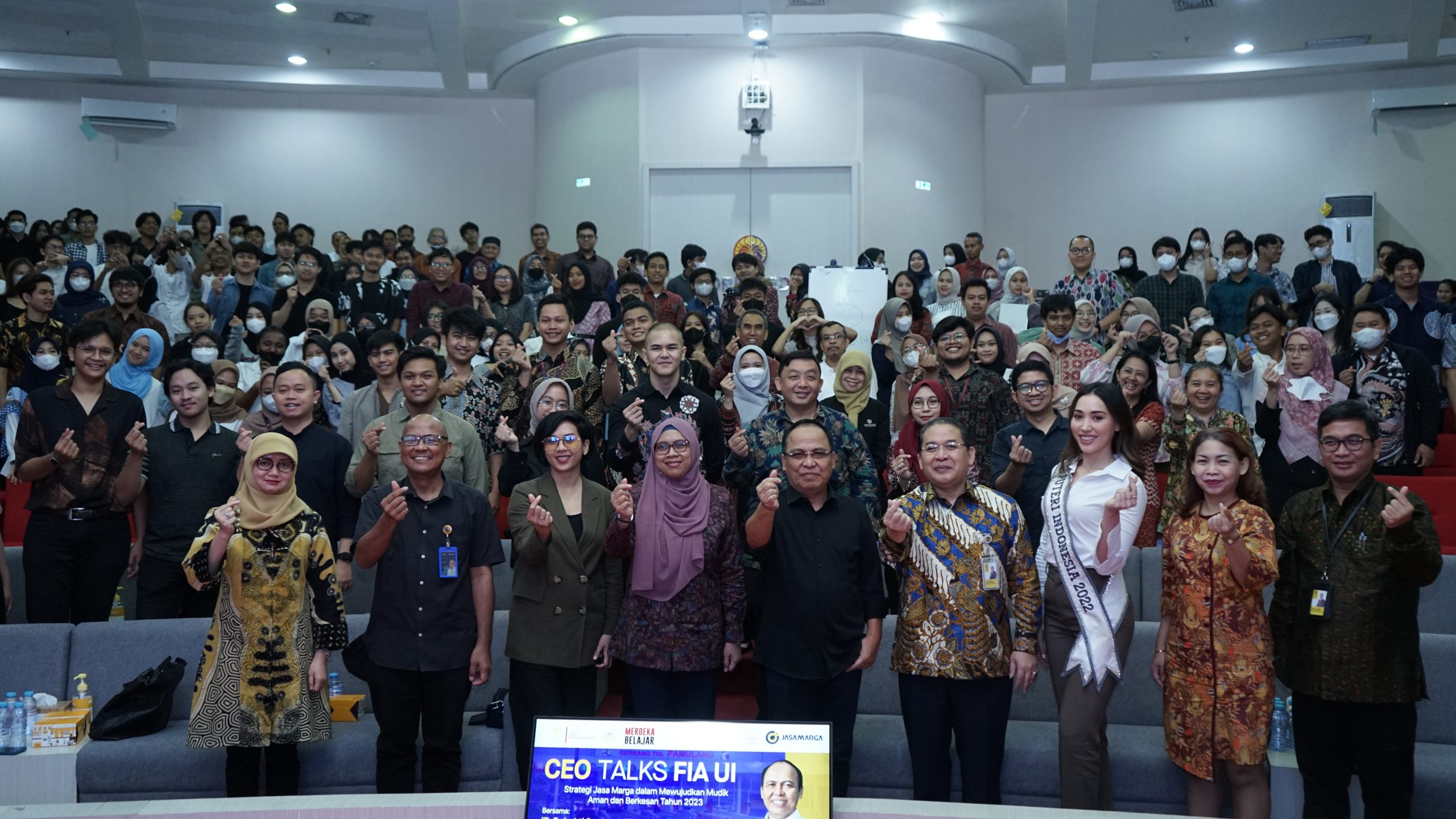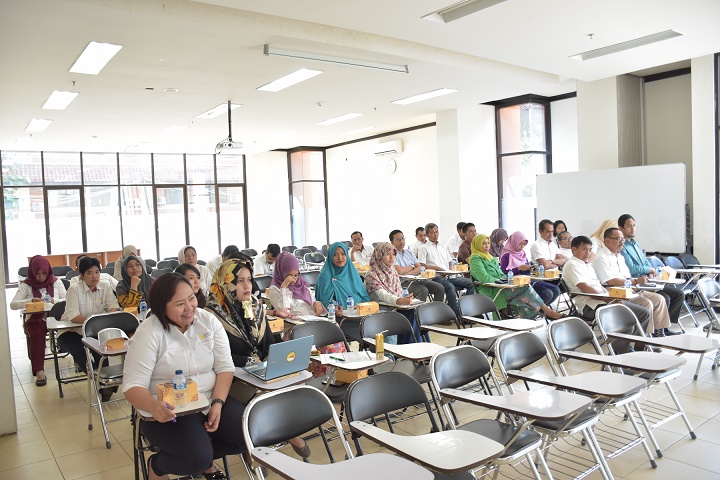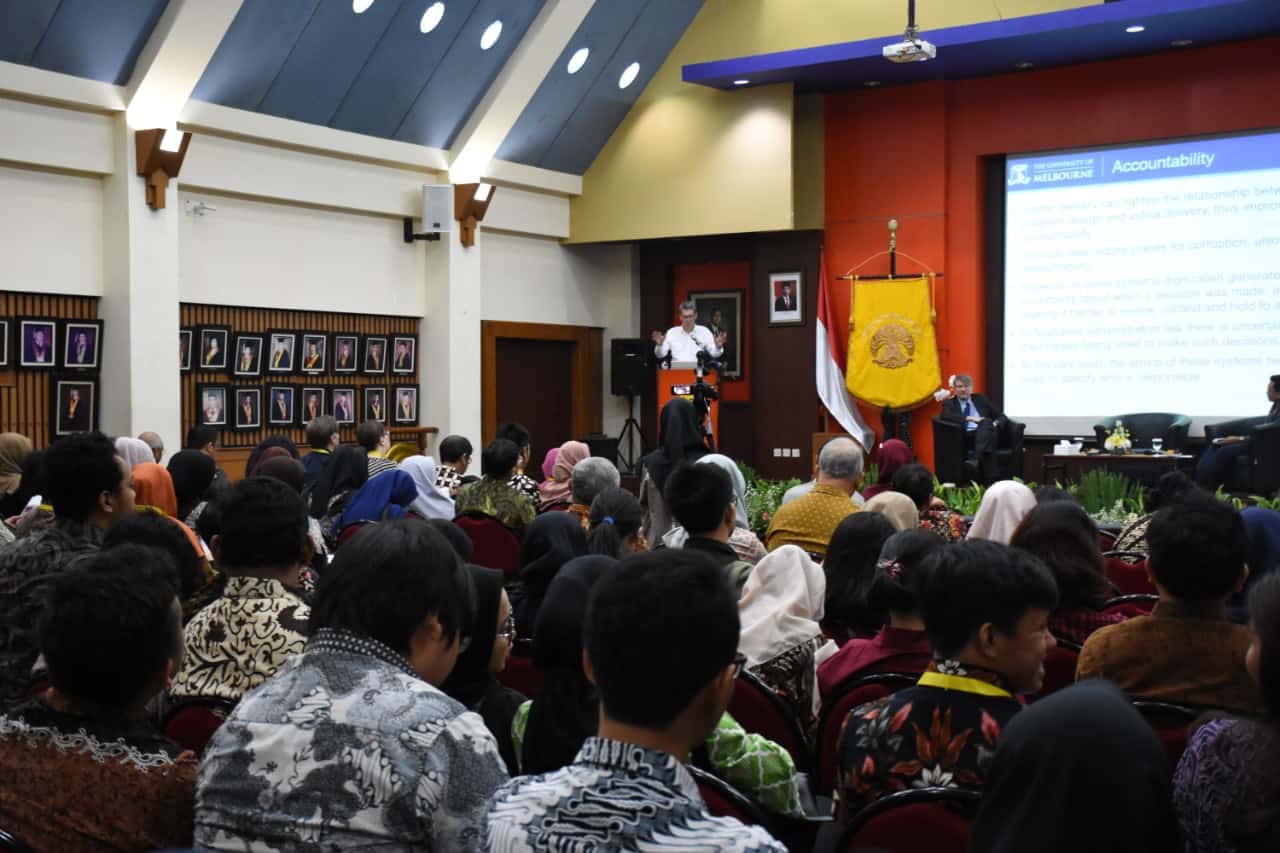The Community Service Team (Pengmas) research cluster Policy, Governance, and Administrative Reform (PGAR) Faculty of Administrative Sciences, University of Indonesia (FIA UI) helped Balekambang Village officials identify village problems to find solutions on Monday (27/12).
Located at the Balekambang Village Hall, Nagrak, Sukabumi, the head of the PGAR FIA UI Community Community Service team, Dr. Muh Azis Muslim conveyed about leadership and performance accountability. “Leadership, leadership and accountability are like a coin. One side of the leader with his power and on the other side the leader must be accountable,” he said.
Azis also appreciated the Balekambang Village Government for being transparent regarding the management of village funds by displaying village income and expenditure on large billboards.
In his remarks, the Head of Balekambang Village Yudi Setiadi encouraged village officials to learn from other villages that have the same budget but can carry out many innovative programs that support the development and progress of their village.
Afterwards, Azis appreciated Yudi Setiadi’s remarks as the village head who is a leader who can set an example and has a vision and mission of realizing an effective, clean, transparent government for economic strengthening and achieving the welfare of the people of Balekambang Village.
“Earlier it was explained that the Village Head has a high commitment to reform at the village level. Pak Yudi’s vision and mission are in line with bureaucratic reform,” said Azis.
To achieve this Vision and Mission, Azis explained that all parties must collaborate and be able to identify problems and then determine the outcome to be achieved. “A leader must be accountable, which means the leader is required to be able to account for every rupiah of the budget in the village while ensuring that it brings benefits to its citizens,” added Azis.
In the second session, Marcel Angwyn, MPA. deliver material on the use of a logical approach in preparing an action plan. Marcel teaches the stages of problem identification, stakeholder analysis, to the preparation of action plans.
To support understanding, Marcel invited all participants to do hands-on practice. In 3 discussion groups facilitated by Nidaan Khafian, MA., Debie Puspasari, MPA, and Wahyu Mahendra, M.Egov, each group did a simulation of problem identification and alternative selection.
In the discussion, the three groups highlighted issues related to MSME capital, population data, and waste problems. Meanwhile, according to group 1, MSMEs still have difficulty obtaining capital so that it can have an impact on the welfare of the community. One of the problems identified by group 1 is the lack of access for MSMEs to banking institutions.
“Although in theory MSMEs are given the convenience of accessing credit from banking institutions, in practice MSME actors are still constrained,” said one participant.
According to group 2, unupdated population data can limit people’s access to assistance, the Healthy Indonesia Card, and so on. One of the causes of the problems identified by the participants was the low level of public awareness in updating population data.
Meanwhile, group 3 highlighted the problem of waste that can cause flooding in one of the hamlets. Group 3 also acknowledged the low level of public awareness as one of the causes of the problem.
For approximately 3 hours listening to the material and discussing, the three groups were finally able to identify problems and choose alternative solutions to problems. The Secretary of the Village Consultative Body (BPD) who was also present as a participant appreciated this very useful activity which is also relevant to what the BPD will do in the future.
“This activity really provides enlightenment for Balekambang Village officials. If we want to move forward we have to think about this village together, from us to us. We and all participants who are present here hope that there will be follow-up as well as assistance from the FIA UI team in the future regarding improving Balekambang Village Governance,” said Yudi at the end of the event.
It is known, the community service activity was attended by 20 participants consisting of village officials, PKK leaders, village assistants, BPD heads, youth youth groups, LPM leaders, LMD leaders, and Babinsa. This activity was initiated by the Policy, Governance, and Administrative Reform (PGAR) research cluster, Faculty of Administrative Sciences, University of Indonesia, chaired by Prof. Dr. Eko Prasojo, Mag.rer.publ.

